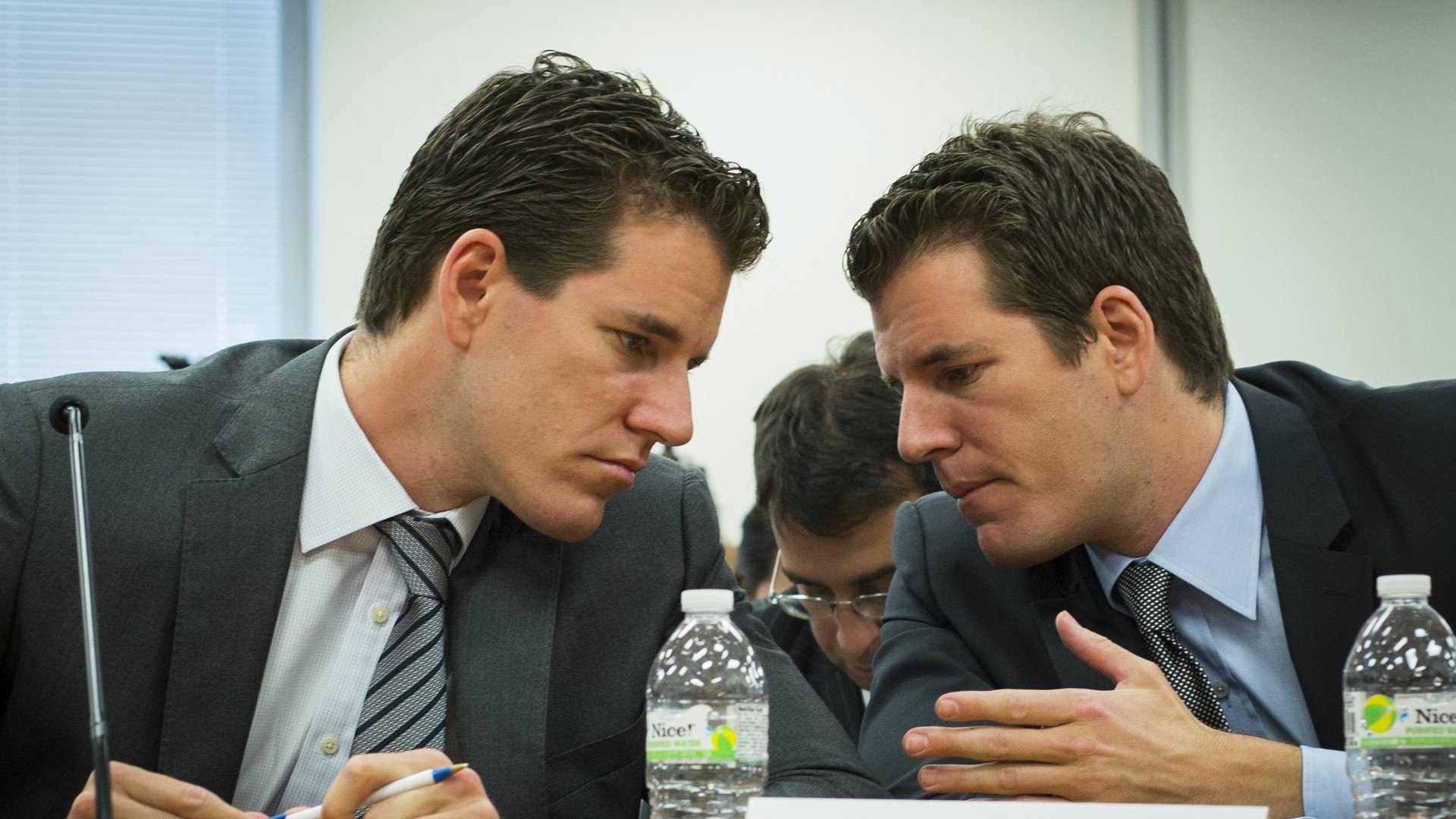The Winklevoss twins’ bitcoin exchange is using Nasdaq technology to monitor for manipulation
Gemini, the digital asset exchange founded by Cameron and Tyler Winklevoss, is using Nasdaq technology to monitor for trading manipulation. The partnership comes as regulators are more closely scrutinizing crypto transactions, and may also mark the first time a digital-asset market has deployed a well-established surveillance system to root out misbehavior.


Gemini, the digital asset exchange founded by Cameron and Tyler Winklevoss, is using Nasdaq technology to monitor for trading manipulation. The partnership comes as regulators are more closely scrutinizing crypto transactions, and may also mark the first time a digital-asset market has deployed a well-established surveillance system to root out misbehavior.
The Winklevoss twins’ exchange will use Nasdaq’s technology to monitor transactions in bitcoin, ethereum, and the US dollar during continuous trading and for its trading auctions, which provide pricing for Cboe’s bitcoin futures contracts. Applying such technology to the closing auction could be notable, because trading volumes have been relatively thin at times, making them potentially vulnerable to manipulation (paywall).
Crypto exchanges tout their homegrown technology, but that means learning a lot of lessons the hard way. As trading volumes soared last year, so too did exchange meltdowns and disruptions. While these venues have added millions of traders, their policies and systems to police these markets are seen as substandard. Last week, New York attorney general Eric Schneiderman asked 13 crypto platforms for information on their operations, internal controls, and safeguards to protect customer assets.
Kraken is one of the crypto platforms that received a letter from Schneiderman. The exchange’s chief executive, Jesse Powell, argued in a surprisingly snarky blog post that “most crypto traders” don’t care about “being protected from market manipulation,” and that reducing such manipulation is really a “euphemism for mind control.” Kraken’s pricing data is used in CME Group‘s index that is linked to its bitcoin futures contract. Chicago-based CME is regulated by the US Commodity Futures Trading Commission, which seeks to stop—you guessed it—market manipulation.
Gemini appears to take a traditional approach to policing its venue: The exchange “has aggressively pursued comprehensive compliance and surveillance programs,” Gemini CEO Tyler Winklevoss said in a statement. The company believes trading surveillance “betters our exchange and the cryptocurrency industry as a whole.”